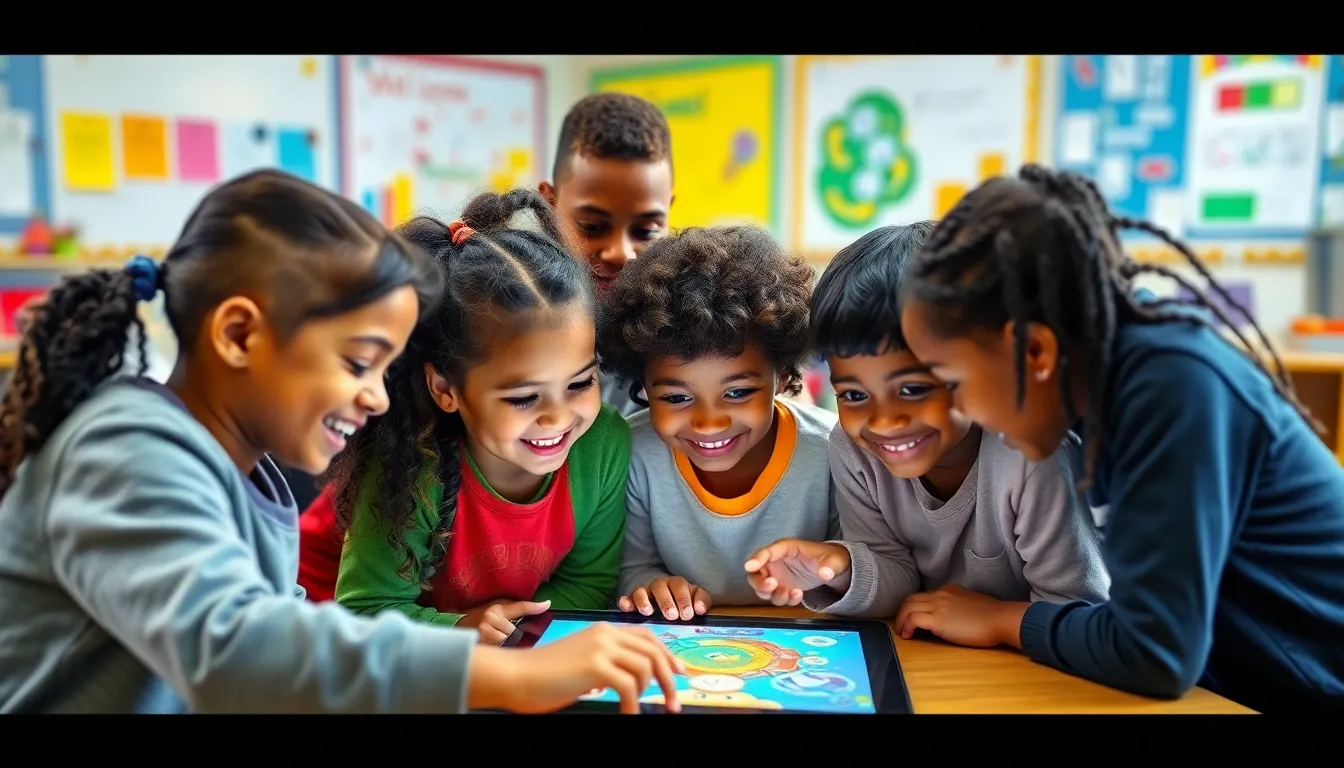Table of Contents
ToggleAs students transition from the cozy confines of home to the bustling world of college, the influence of helicopter parenting can feel like a double-edged sword. While parents mean well, hovering over every decision can leave young adults feeling more like passengers than pilots in their own lives. Imagine trying to navigate campus life with mom or dad swooping in to save the day at every bump in the road—it’s enough to make anyone want to take a nosedive into the nearest dorm room.
Understanding Helicopter Parenting
Helicopter parenting describes a parenting style characterized by excessive closeness and involvement in a child’s life. This approach can hinder a child’s independence and problem-solving abilities.
Definition and Characteristics
Helicopter parents closely monitor their children’s activities and decisions. Common traits include consistently intervening in academic issues and social relationships. Parents communicate excessively with school staff, often bypassing their child’s autonomy. These parents often seek to alleviate their children’s stress rather than encouraging resilience. Such actions portray a desire for control over a child’s experiences, which can stifle personal growth.
Effects on Child Development
Helicopter parenting affects a child’s sense of autonomy. Research indicates that young adults often struggle with decision-making and self-advocacy skills. They may exhibit higher levels of anxiety and depression due to a lack of confidence. Children raised by these parents may also find it challenging to navigate college life independently. Experiences of failure or adversity contribute positively to personal development, but helicopter parenting limits exposure to these crucial growth opportunities.
The College Transition
College marks a significant shift for students as they move from the structure of home to the independence of campus life. This transition requires students to adapt, learn, and ultimately thrive on their own.
Importance of Independence
Independence plays a crucial role in a student’s development during college. Cultivating self-reliance fosters confidence and resilience, allowing students to make decisions and learn from their experiences. Developing critical thinking skills becomes vital in navigating new challenges. Without parental interference, young adults gain an opportunity to enhance their problem-solving abilities. Forming their identity takes precedence during this time, as students explore their values and aspirations. Additionally, building friendships and social networks contributes to personal growth, reinforcing the need for autonomy.
Common Challenges Faced by Students
Students encounter various challenges when adjusting to college life. Time management frequently poses difficulties, as students balance academics, social activities, and personal responsibilities. Homesickness often emerges, with some students struggling to adapt to a new environment away from family. Academic pressure contributes to feelings of anxiety and stress, particularly among those who relied on parents for assistance. Developing financial literacy becomes essential as students learn to budget and manage expenses independently. Navigating relationships, understanding campus resources, and seeking help also present obstacles in this critical transitional phase. Addressing these challenges equips students with necessary skills for their future.
The Relationship Between Helicopter Parenting and College Adjustment
Helicopter parenting significantly influences the adjustment process students experience in college. Understanding this relationship provides insight into how varying levels of parental involvement affect young adults during their transition.
Positive Aspects of Involvement
Parental support can foster a sense of security for students entering college. Active involvement can provide guidance, helping students navigate academic choices and establish social networks. Parents can serve as mentors, offering resources that enhance academic performance. Additionally, timely encouragement can boost students’ confidence as they tackle new challenges independently. When parents maintain open lines of communication, students feel supported, which may ease anxiety during this significant life change.
Negative Impacts on Autonomy
In contrast, excessive involvement may hinder a student’s development of autonomy. Increased dependence on parental guidance can lead to challenges in decision-making. Young adults often struggle to assert themselves and resolve conflicts without parental intervention. This reliance may create feelings of inadequacy, reducing students’ self-confidence. Moreover, difficulties in developing self-advocacy skills can emerge as students face problems on their own. With constant parental oversight, students may miss out on critical opportunities for growth, impacting their overall college experience negatively.
Strategies for Parents
Parents play a pivotal role in helping their children adjust to college life. Utilizing effective strategies can foster independence and enhance communication.
Encouraging Independence
Emphasizing independence facilitates students’ growth. Parents can promote self-reliance by allowing their children to tackle everyday tasks without intervention. Establishing a foundation of trust leads to confidence in decision-making. Encouraging students to manage their time, finances, and academic responsibilities nurtures essential life skills. Avoiding micromanagement fosters resilience in the face of adversity. Allowing students to learn from their mistakes equips them for future challenges. Supporting them while stepping back empowers their autonomy.
Communication Techniques
Effective communication techniques nurture healthy relationships. Engaging in open discussions about expectations prevents misunderstandings. Establishing regular check-ins allows for sharing experiences while maintaining boundaries. Encouraging active listening creates a supportive environment. Offering guidance without decision-making reinforces a student’s ability to self-advocate. Practicing patience during conversations allows students to express their feelings and thoughts freely. Maintaining clear, respectful dialogue strengthens emotional connections. Prioritizing constructive feedback fosters growth while avoiding criticism.
Navigating the transition to college can be a challenging yet transformative experience for students. Striking a balance between parental support and fostering independence is essential for their growth. While well-meaning parents may wish to protect their children from difficulties, it’s crucial for students to face challenges on their own.
Cultivating self-reliance and confidence during these formative years prepares them for future success. Encouraging autonomy not only enhances decision-making skills but also helps in building resilience. As students learn to manage their lives independently they’re better equipped to thrive in college and beyond.







